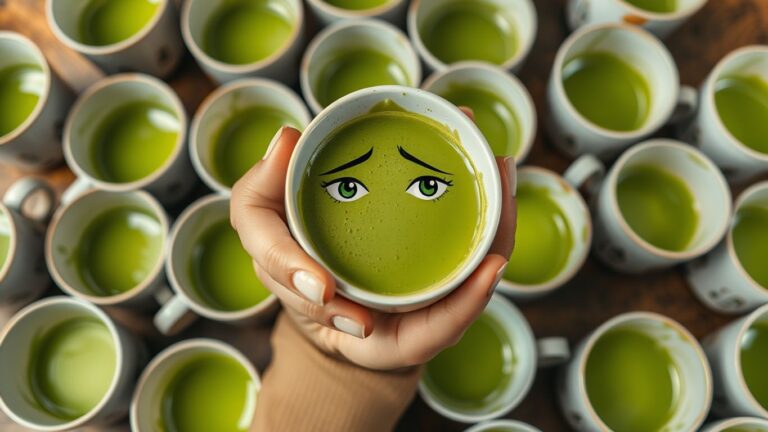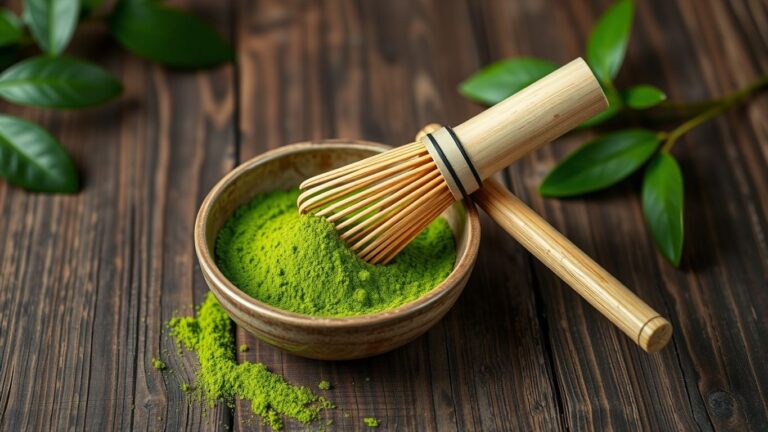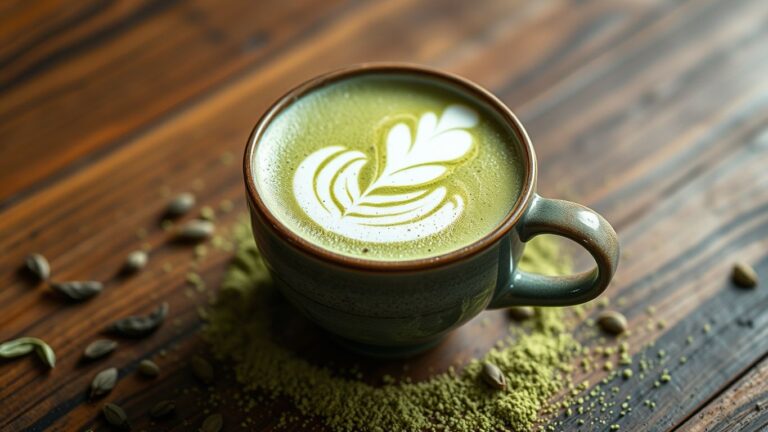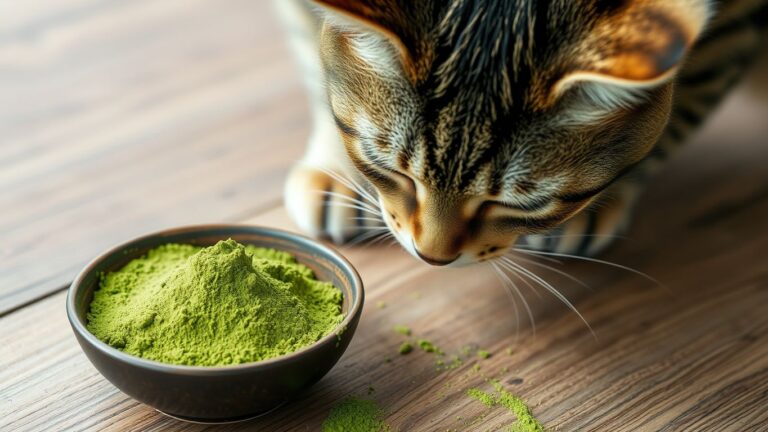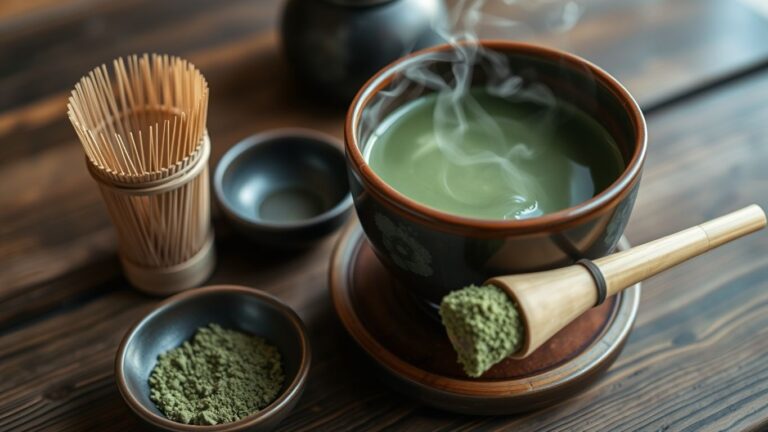Matcha, a powdered form of green tea, has been celebrated for centuries for its unique energy-boosting properties. Unlike other caffeinated beverages that can cause jitters and crashes, matcha offers a smoother, more sustained energy lift. This article explores how matcha works to boost your energy, comparing it to other popular drinks like coffee, and delving into its nutritional components and traditional uses.
Key Takeaways
- Matcha provides a balanced caffeine boost that lasts longer than coffee without causing jitters.
- The combination of caffeine and L-theanine in matcha promotes mental clarity and focus.
- Matcha is rich in antioxidants, which support overall health and boost the immune system.
- Traditional and modern uses of matcha highlight its benefits for both energy and well-being.
- Incorporating matcha into your daily routine can enhance physical performance and mental alertness.
The Unique Energy Boosting Properties of Matcha
Matcha tea is known for its unique energy-boosting properties, setting it apart from other teas and caffeinated beverages. Let’s explore what makes matcha so special.
How Matcha Differs from Other Teas
Unlike regular green tea, matcha is made from the whole tea leaf, ground into a fine powder. This means you consume the entire leaf, getting more nutrients and a stronger energy boost. Matcha also contains a balanced amount of caffeine, providing a smoother energy lift compared to coffee.
The Role of L-Theanine in Energy Boost
Matcha is rich in L-Theanine, an amino acid that promotes relaxation and mental alertness. This unique combination helps you stay calm and focused, providing a steady energy boost without the jitters. L-Theanine works with caffeine to enhance cognitive function, making matcha an excellent choice for sustained energy.
Caffeine Content in Matcha
A cup of matcha contains about 60 mg of caffeine, which is less than coffee but more than most teas. This balanced caffeine content, combined with L-Theanine, results in a gradual release of energy, keeping you alert and energized for hours. Unlike coffee, matcha offers a sustained energy boost without the crash.
Matcha vs. Coffee: Which Provides Better Energy?
When it comes to choosing between matcha and coffee for an energy boost, both have their unique advantages. However, matcha offers a smoother and longer-lasting energy boost compared to coffee. Let’s dive into the details to see how they stack up against each other.
Nutritional Components That Contribute to Matcha’s Energy Boost
Matcha tea is packed with nutrients that help boost your energy levels. Let’s dive into the key components that make matcha a powerful energy enhancer.
Traditional and Modern Uses of Matcha for Energy
Historical Significance in Japanese Culture
Matcha tea has been a part of Japanese culture for centuries. Initially, it was used in temples to help monks stay awake and focused during long meditation sessions. Over time, it became a key element in Japanese tea ceremonies, symbolizing mindfulness and respect.
Modern Health Practices
Today, matcha is celebrated for its health benefits and is used in various modern health practices. Matcha provides a balanced amount of caffeine for a sustained energy boost. Unlike coffee, which can lead to jitters and crashes, matcha offers a smoother energy boost. This makes it an excellent choice for improving mental clarity and focus throughout the day.
Matcha in Ayurvedic Medicine
In Ayurvedic medicine, matcha is valued for its comprehensive health benefits. It is not just a stimulant but also a contributor to overall well-being. The combination of caffeine and L-theanine in matcha helps to provide calm, focused energy, making it a preferred choice for those looking to enhance their mental and physical performance.
Matcha’s unique blend of nutrients makes it a superior alternative to conventional energy drinks, offering sustained energy without the crash.
How to Incorporate Matcha into Your Daily Routine
Incorporating matcha into your daily routine can be both enjoyable and beneficial. Here are some engaging ways to make matcha a part of your day-to-day life.
Morning Matcha Rituals
Start your day with a morning matcha ritual. Preparing matcha in the morning can be a calming and energizing way to begin your day. You can make a simple matcha tea by whisking matcha powder with hot water, or you can create a delicious matcha latte by adding steamed milk. For those always on the move, simply empty a matcha packet into your water bottle, shake vigorously, and enjoy.
Matcha Recipes for Energy
Matcha is incredibly versatile and can be added to various recipes to give you an energy boost. Here are a few ideas:
- Matcha Smoothies: Blend matcha with fruits, vegetables, and a liquid base like coconut milk for a nutrient-packed smoothie.
- Matcha Energy Bites: Combine matcha with oats, nuts, and dried fruits to create quick and easy energy bites.
- Matcha Oatmeal: Stir matcha into your morning oatmeal for an extra kick of antioxidants and energy.
Matcha Smoothies and Lattes
Smoothies and lattes are popular ways to enjoy matcha. Here’s a simple recipe for a matcha smoothie:
Ingredients
- 1 large mango (fresh or frozen)
- 2 frozen bananas
- 2 large handfuls baby spinach
- 2 tsp matcha
- 1 cup (240ml) light coconut milk
Preparation
- Pour coconut milk into your blender jug.
- Add sifted matcha and spinach and blend until fully mixed.
- Add mango and frozen bananas and blend until creamy and smooth.
For a warm matcha latte, whisk matcha powder with hot water, then add steamed milk and sweeten to taste. This drink is perfect for those who love the feeling of drinking a cup of hot coffee in the morning but want a healthier alternative.
Embrace the green wave of matcha and discover how it can seamlessly fit into your daily routine, providing you with sustained energy and a sense of calm.
The Science Behind Matcha’s Sustained Energy Release
Gradual Caffeine Release
Matcha tea provides a balanced amount of caffeine for a sustained energy boost. Unlike coffee, which can lead to a quick spike and crash, matcha releases caffeine gradually. This slow release helps you stay alert and focused for longer periods without the jitters.
The Synergy of Caffeine and L-Theanine
The combination of L-theanine and caffeine in matcha provides a sustained energy boost and improved cognitive function. L-theanine, an amino acid found in matcha, works with caffeine to enhance mental clarity and focus. This synergy makes matcha an excellent choice for maintaining energy throughout the day.
Scientific Studies Supporting Matcha’s Benefits
Research has shown that matcha can improve attention and memory. Studies suggest that the unique blend of caffeine and L-theanine in matcha contributes to its ability to provide long-lasting energy and mental clarity. This makes matcha a superior alternative to other caffeinated beverages.
Matcha Tea Preparation Techniques for Maximum Energy
Traditional Japanese Preparation
To drink matcha the right way, start with the traditional Japanese method. This involves sifting a small amount of matcha powder into a bowl, adding hot water, and whisking it with a bamboo whisk until it becomes frothy. This method not only enhances the flavor but also maximizes the energy-boosting properties of matcha.
Modern Methods and Tools
For a quicker preparation, you can use modern tools like electric frothers. Simply sift the matcha into a cup, add hot water, and use the frother to mix until smooth. This method is perfect for busy mornings when you need a fast energy boost.
Common Mistakes to Avoid
Avoid using boiling water as it can make the matcha taste bitter. Instead, use water that is about 175°F (80°C). Also, make sure to sift the matcha powder to prevent clumps and ensure a smooth, enjoyable drink.
Proper preparation is key to unlocking the full energy-boosting potential of matcha. By following these techniques, you can enjoy a delicious and energizing cup of matcha every time.
Health Benefits Beyond Energy: What Else Does Matcha Offer?

Boosting Immune Health
Matcha tea is rich in antioxidants, particularly catechins, which help stabilize harmful free radicals. This can prevent cell damage and lower your risk of chronic diseases. Including matcha in your diet could enhance your immune system, making you less susceptible to illnesses.
Supporting Heart Health
Studies suggest that matcha can help lower cholesterol and reduce the risk of heart disease. The antioxidants in matcha, especially catechins, are known to improve heart health by reducing bad cholesterol levels and promoting good cholesterol.
Promoting Mental Well-being
Matcha contains high levels of L-Theanine, an amino acid that promotes relaxation and reduces stress without causing drowsiness. This makes matcha an excellent choice for improving mental clarity and focus. The combination of L-Theanine and caffeine in matcha can also enhance brain function, making you feel more alert and focused.
Matcha’s linked to heart health, memory improvement, and focus. It’s a nice once-a-day drink to boost health.
Incorporating matcha into your daily routine can offer a range of health benefits beyond just an energy boost. From boosting your immune system to supporting heart health and promoting mental well-being, matcha is a versatile and beneficial addition to your diet.
Matcha as a Superior Alternative to Energy Drinks

Natural Ingredients vs. Artificial Additives
Energy drinks are often loaded with artificial additives and sugars. In contrast, matcha is a natural product made from finely ground green tea leaves. This means you get a pure source of energy without the unwanted extras.
Sustained Energy Without the Crash
Unlike the quick spike and subsequent crash from energy drinks, matcha provides a steady release of energy. This is due to the combination of caffeine and L-theanine, which work together to give you a balanced energy boost. You’ll feel more alert and focused without the jitters.
Health Risks of Conventional Energy Drinks
Energy drinks can pose several health risks, including heart palpitations and high blood pressure. Matcha, on the other hand, is rich in antioxidants and other nutrients that support overall health. It’s a safer, healthier way to stay energized.
When you choose matcha over energy drinks, you’re opting for a natural, balanced, and healthier way to boost your energy levels.
The Cultural Significance of Matcha Tea

The Art of Japanese Tea Ceremonies
Matcha tea is not just a drink; it’s a cultural icon with deep roots in Japan. Introduced to Japan in the 1100s by a Zen Buddhist monk, matcha quickly became a central part of Japanese tea ceremonies. These ceremonies are not just about drinking tea but are a form of art that emphasizes mindfulness, respect, and tranquility. The preparation and consumption of matcha in these ceremonies symbolize a deep connection to nature and a moment of peace in a busy world.
Matcha’s Role in Mindfulness Practices
In addition to its role in tea ceremonies, matcha is also significant in various mindfulness practices. The process of preparing and drinking matcha encourages you to slow down and be present in the moment. This practice aligns with the principles of mindfulness, helping you to focus on the here and now. The calming effects of L-theanine in matcha further enhance this experience, making it a perfect companion for meditation and other mindfulness activities.
Cultural Rituals and Modern Adaptations
While matcha has a rich history in traditional Japanese culture, it has also found a place in modern life. Today, matcha is enjoyed in various forms, from lattes to smoothies, and is celebrated for its health benefits. This blend of tradition and modernity makes matcha a unique beverage that bridges the past and the present. Whether you are participating in a traditional tea ceremony or enjoying a matcha latte at a café, you are partaking in a cultural ritual that has evolved over centuries.
Lifestyle and Wellness: The Role of Matcha Tea

Incorporating Matcha for Better Focus
Drinking matcha every morning can boost your energy and focus. Unlike coffee, matcha provides a less jittery pick-me-up. This is due to matcha’s high concentration of flavonoids and L-theanine, which increases the brain’s alpha frequency band and produces relaxing effects by raising serotonin, GABA, and dopamine levels. Research suggests that L-theanine is especially helpful for high levels of stress and anxiety, increasing relaxation without causing drowsiness. These effects have even been found at doses given in a cup of tea.
Matcha and Physical Performance
Matcha is a powerful ally in fighting fatigue. The combination of naturally occurring amino acids plus small amounts of caffeine tend to give an instant boost to personal energy levels. Most people feel the stimulative effects of a cup of matcha for at least two hours, but they last as long as six hours for some people. Several key studies published in the American Journal of Clinical Nutrition concluded that quality matcha has thermogenic properties (thermogenesis is the rate at which the human body burns calories), and that exercising immediately after drinking matcha resulted in 25% more fat burning during exercise.
Daily Habits for Maximum Benefits
Sipping matcha daily can have a positive impact on your energy levels and overall health. Matcha is rich in the antioxidant catechins, a plant compound found in tea. In fact, matcha has one of the highest amounts of antioxidants among superfoods according to the ORAC (Oxygen Radical Absorption Capacity) test. This makes matcha great at fighting free radicals, preventing cancer, and protecting the heart. Try it: You can enjoy matcha tea hot or iced and customize it to your own tastes by lightly sweetening with maple syrup or honey, adding fruit, or blending it into a smoothie.
Conclusion
In summary, matcha tea is a fantastic choice for those seeking a steady and smooth energy boost. Unlike coffee, matcha provides a balanced amount of caffeine, working together with L-theanine to enhance focus and mental clarity without the jitters or crashes. Additionally, matcha is packed with antioxidants and other nutrients that support overall health. Whether you’re looking to improve your concentration, boost your metabolism, or simply enjoy a delicious and healthy beverage, matcha tea is a versatile and beneficial option. So, why not give matcha a try and experience its unique energy-boosting benefits for yourself?
Frequently Asked Questions
What makes matcha different from other teas in terms of energy boost?
Matcha contains both caffeine and L-theanine, which work together to provide a smooth and sustained energy boost without the jitters or crash associated with other caffeinated drinks.
How does the caffeine content in matcha compare to coffee?
A cup of matcha typically contains about 60 mg of caffeine, which is less than a cup of coffee. However, matcha’s caffeine is released more gradually, providing a longer-lasting energy boost.
Can matcha help improve mental clarity and focus?
Yes, the combination of caffeine and L-theanine in matcha helps to enhance cognitive function, leading to better focus and mental clarity.
Is matcha a good alternative to energy drinks?
Absolutely! Matcha provides a natural energy boost without the artificial additives and high sugar content found in many energy drinks. It also offers additional health benefits like antioxidants and amino acids.
What are the nutritional components in matcha that contribute to its energy-boosting effects?
Matcha is rich in antioxidants, amino acids like L-theanine, and various vitamins and minerals. These components work together to provide sustained energy and overall health benefits.
How can I incorporate matcha into my daily routine?
You can enjoy matcha in various forms such as traditional tea, lattes, smoothies, or even in recipes like energy bites and desserts. It’s versatile and easy to include in your daily diet.
Does matcha have any side effects?
Matcha is generally safe for most people when consumed in moderation. However, its caffeine content can cause side effects like insomnia or upset stomach if consumed in large amounts.
What are some traditional and modern uses of matcha for energy?
Traditionally, matcha has been used in Japanese tea ceremonies and for meditation. In modern times, it is popular in health and wellness practices, often used as a natural energy booster and in various recipes.

